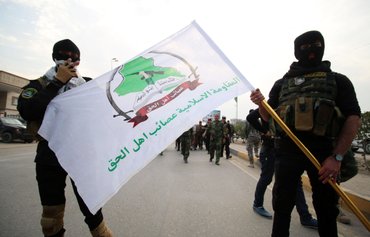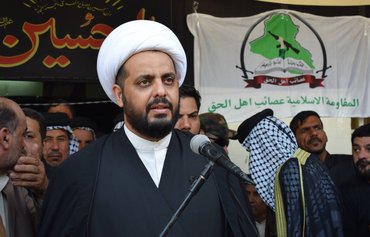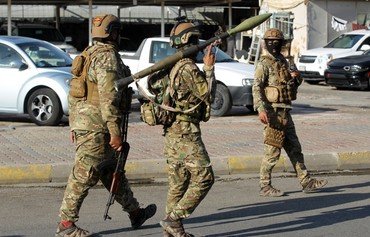Several rockets slammed into an Iraqi military complex next to Baghdad International Airport on Monday (December 9th), wounding six Iraqi troops, the military said.
Security forces found launchers with rockets that had not been fired properly, indicating a larger attack was planned, a military statement said.
It is the latest in an uptick in rocket attacks targeting either Iraqi bases where US troops are located or the US embassy in Baghdad.
US defence officials have blamed several on Iran-backed factions in Iraq.
Security sources said the wounded in Monday's attack belong to Iraq's Counter-Terrorism Service, an elite unit that was created and trained by US forces.
Two of them are in critical condition, the sources said.
The military complex also hosts a small group of US soldiers and diplomats.
There have been at least nine attacks against US targets in Iraq in the span of six weeks.
There have been no claims of responsibility and no US forces have been wounded.
Security sources have linked at least one last week to Kataib Hizbullah, a faction close to Tehran and blacklisted by Washington.
New round of sanctions
On Friday the US Treasury imposed sanctions on Qais al-Khazali, the leader of Iran-backed militia Asaib Ahl al-Haq.
The Treasury accused Asaib Ahl al-Haq of "widespread forced disappearances, abductions, killings, and torture" under the Global Magnitsky act.
The measures block financial transactions with and travel to the US for people who commit human rights abuses or corruption.
Also sanctioned was Laith al-Khazali, Qais's brother, who also belongs to Asaib Ahl al-Haq, and Abu Zeinab al-Lami, who heads the popular mobilisation forces' security apparatus.
Iraqi businessman and political figure Khamees al-Khanjar, an influential powerbroker with close ties across Iraq's leading political parties, also has been slapped with sanctions on accusations of bribery.
This is the second batch of Iraqi nationals the US has sanctioned under the Global Magnitsky act.

![Members of Iraq's Rapid Response military unit take part in a parade at a military base inside Baghdad's International Airport to mark the first anniversary of the country's victory over ISIS on December 10th, 2018.[Ahmad al-Rubaye/AFP]](/cnmi_di/images/2019/12/09/21319-Baghdad-international-airport-600_384.jpg)






